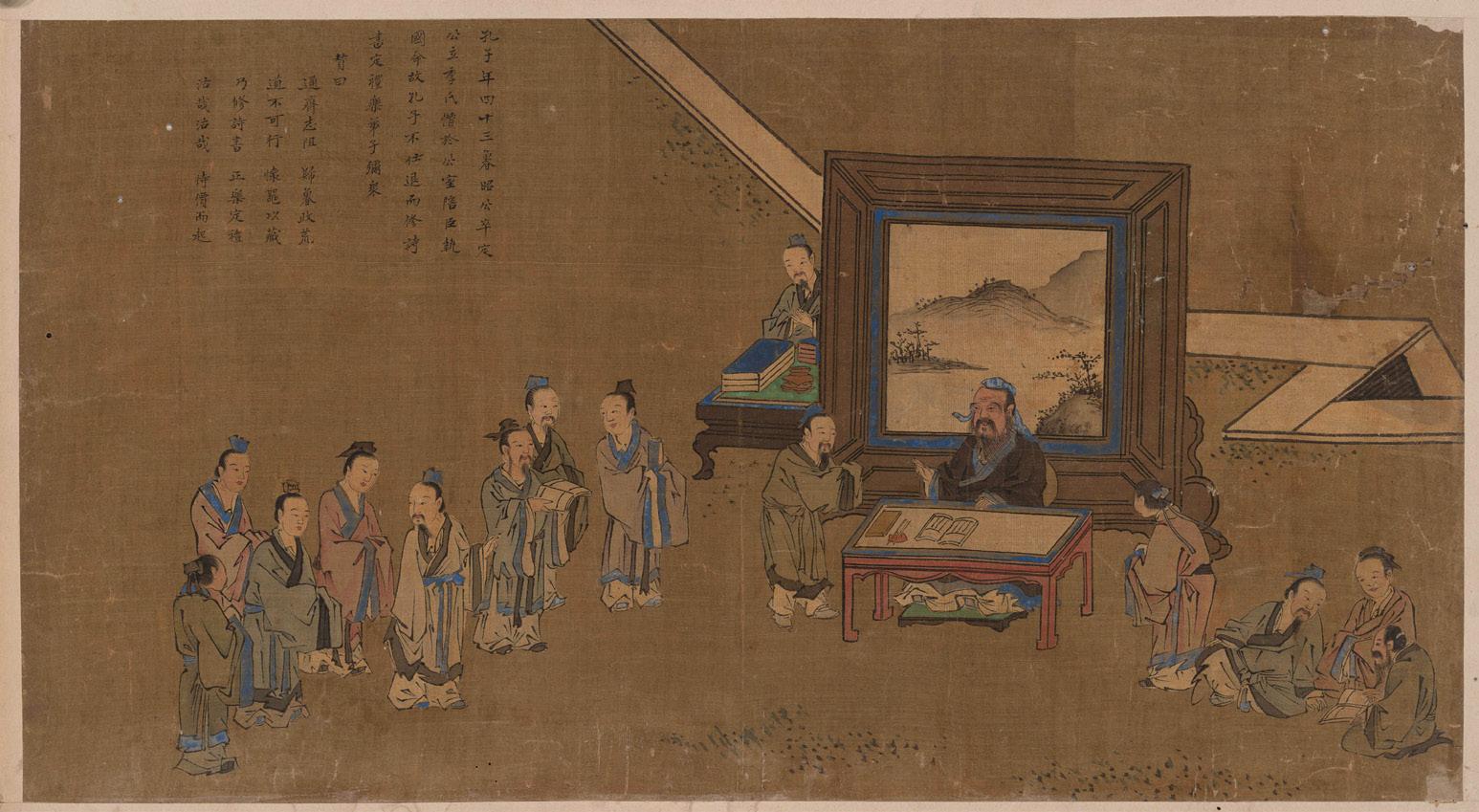
2 minute read
The Spring and Autumn period
770 to 481 BCE
Refuse condolences on the road
Advertisement
齐侯还自晋,不入,遂袭莒,门于且于,伤股而退,明日将复战,期于寿舒,杞,殖华还,载甲夜入且于之隧,宿于莒郊, 明日,先遇莒子于蒲侯氏,莒子重赂之,使无死,曰,请有盟,华周对曰,贪货弃命,亦君所恶也,昏而受命,日未中而弃 之,何以事君,莒子亲鼓之,从而伐之,获杞梁,莒人,行成,齐侯归,遇杞梁之妻于郊,使吊之,辞曰,殖之有罪,何辱 命焉,若免于罪,犹有先人之敝庐在,下妾不得与郊吊,齐侯吊诸其室。
——《左传·襄公二十三年》1
The Duke of Qi attacked and conquered the state of Ju, and his general Qi Liang died in battle. On his return, the Duke met Qi Liang’s wife on the outskirts and sent his condolences. She refused, saying, ‘My husband died because of a crime, why should I accept your condolences? Even if he were free of guilt, our dilapidated house is still here. As a lowly concubine, I have no right to receive condolences with you.’ The Duke paid his respects at her home.”
Recorded in “Zuo Zhuan - The 23rd Year of Duke Xiang”
Zuozhuan
In this initial version of the story, Meng Jiang only appears as the wife of Qi Liang, and as a person who strictly observes ritual propriety. Even in times of grief, she is still able to act with decorum and maintain her composure, which is worthy of admiration. As for how she mourned after her husband’s death, Zuo Zhuan makes no mention of it. It is also not explained in Zuo Zhuan how she ended up in the outskirts, or whether she went there to meet her husband’s coffin. This took place in the year 549 BC. From then on, this event became a story, and how it spread and transformed at time is something unknown.
Social Background
The system of rites and music was a set of practices used to maintain an orderly system of rule centered on the Zhou dynasty. “Li” refers to various etiquette norms, while “yue” encompasses music and dance. As early as the Xia, Shang, and Zhou dynasties, ancient sages used ritual and music to form a fairly complete system of rites and music, which was promoted as moral education to maintain human harmony in society.

According to Confucius’ ideas, when social and political order was established, the emperor established the system of rites and music. If vassals did not follow the system, the emperor would issue orders to punish them. When social and political chaos arose, vassals would establish their own system of rites and music and decide on matters of attack themselves. Thus, during the Spring and Autumn and Warring States periods, people regarded “rites and music” as an ideal political state.

During the Warring States period, the strength of the various vassals increased dramatically and they no longer submitted to the constraints of the system of rites and music. The disorder of social order led to turmoil and unrest. Confucius was determined to rectify the system of rites. The image of the wife of Qi Liang, who steadfastly refused to pay respects to the Duke of Qi, acquired an image of maintaining the system of rites. Her adherence to “Li” was recorded in Zuo Zhuan as a moral model for people of that time.

2 The Book of Rites, Published also known as the Liji, is a collection of texts describing the social forms, administration, and ceremonial rites of the Zhou dynasty as they were understood in the Warring States and the early Han periods.










